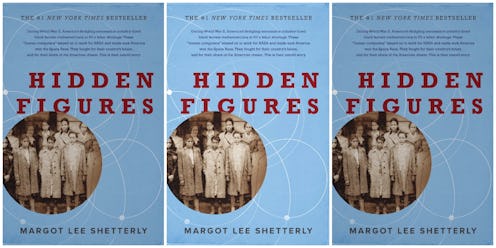
March is Women's History Month, and this year it's more important than ever to make sure that your reading list is diverse and intersectional. In light of this administration's dangerously regressive attitude, I've got eight essential books you should read for Women's History Month.
Women with intersectional identities — those who are members of ethnic or religious minorities; have disabilities or chronic illnesses; are homeless, incarcerated, or displaced; or are part of the LGBTQIA community — are frequently erased by both Women's History month, which focuses largely on white women, and other observance periods, which focus primarily on men of note. All too often, Women's History Month becomes another occasion to celebrate the achievements of Susan B. Anthony, Sandra Day O'Connor, and Eleanor Roosevelt, while ignoring advances made by Mae C. Jemison, Sofia Vergara, and Sen. Tammy Duckworth (D-IL).
In choosing the eight titles on this list, I have attempted to draw stories from the marginalized communities and women who have been overlooked and undermentioned in both historical narratives and contemporary conversations. Many of the women profiled below are alive and working to make women's history today.
Obviously, this list is nowhere near comprehensive or exhaustive, so please be sure to share your essential books to read for Women's History Month with me on Twitter after you've finished up here.
1
‘Sophia’ by Anita Anand
After her father’s inheritance, the Kingdom of the Sikhs, was occupied and plundered by British colonialism, Sophia Duleep Singh grew up in English exile. Sophia was raised to be a traditional English noblewoman, but she returned from a trip to India charged with new missions: Indian independence and equality, and woman’s suffrage.
2
‘Wall Tappings’ by Judith A. Scheffler
Whenever you see a women’s rights demonstration, take a moment to consider the women who cannot be present due to mass incarceration. In Wall Tappings, Judith A. Scheffler examines nearly 2000 years of women’s prison writings to explore an untold facet of human history.
3
‘Paradise Beneath Her Feet’ by Isobel Coleman
All too often, Westerners think of the Middle East — and women’s places within it — as monolithic and stagnant. But Middle Eastern feminism is alive and well, as it has been for centuries. In Paradise Beneath Her Feet, Isobel Coleman interviews Islamic feminist activists from five countries —Afghanistan, Iran, Iran, Pakistan, and Saudi Arabia — to expose the real-life movements that wed religion and progress.
4
‘Every Day Is a Good Day’ by Wilma Mankiller
This collection of indigenous women’s reflections on life in the margins of the 21st century is the result of 19 interviews conducted by the late Cherokee Nation Chief Wilma Mankiller.
5
'Hidden Figures' by Margot Lee Shetterly
Margot Lee Shetterly's microhistory on the black women engineers who helped launch the U.S. space program is a fantastic and intersectional read you shouldn't overlook. The book that inspired one of the biggest movies of 2016 should be on your Women's History Month reading list this year.
6
'A Dolores Huerta Reader,' edited by Mario T. Garciá
In 1960, Mexican-American activist Dolores Huerta founded two organizations — which would later merge into the United Farm Workers — to help migrant agricultural workers seize their rights to vote and have access to public services. A Dolores Huerta Reader collects her articles and speeches on agriculture regulation and farm workers' rights.
7
'The Good Women of China' by Xue Xinran
During the 1990s, Xue Xinran hosted a popular call-in program on Chinese radio. In 1997, she moved to the U.K. and published The Good Women of China: a collection of interviews conducted on the show, interspersed with her own reflections on Chinese life and politics during the latter half of the 20th century.
8
'Thinking in Pictures' by Temple Grandin
Colorado State University professor Temple Grandin is an award-winning animal behaviorist, and has spoken extensively on her experience of being on the autism spectrum in a neurotypical world.